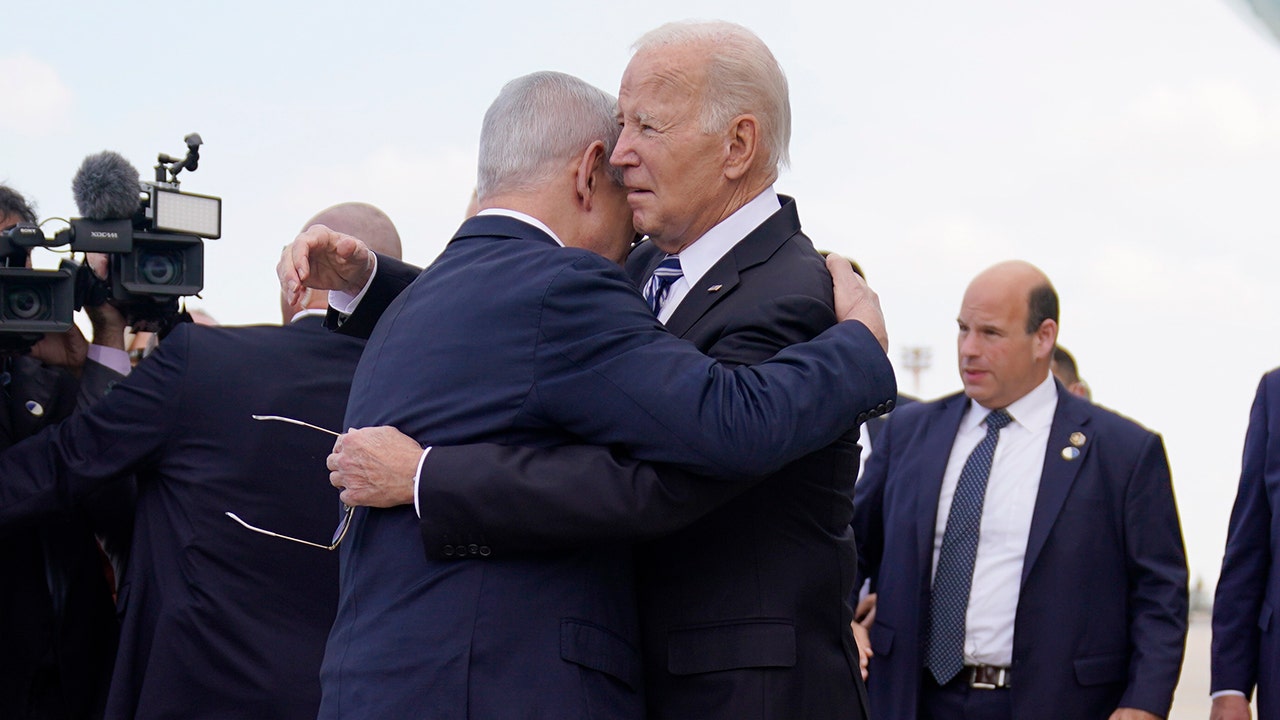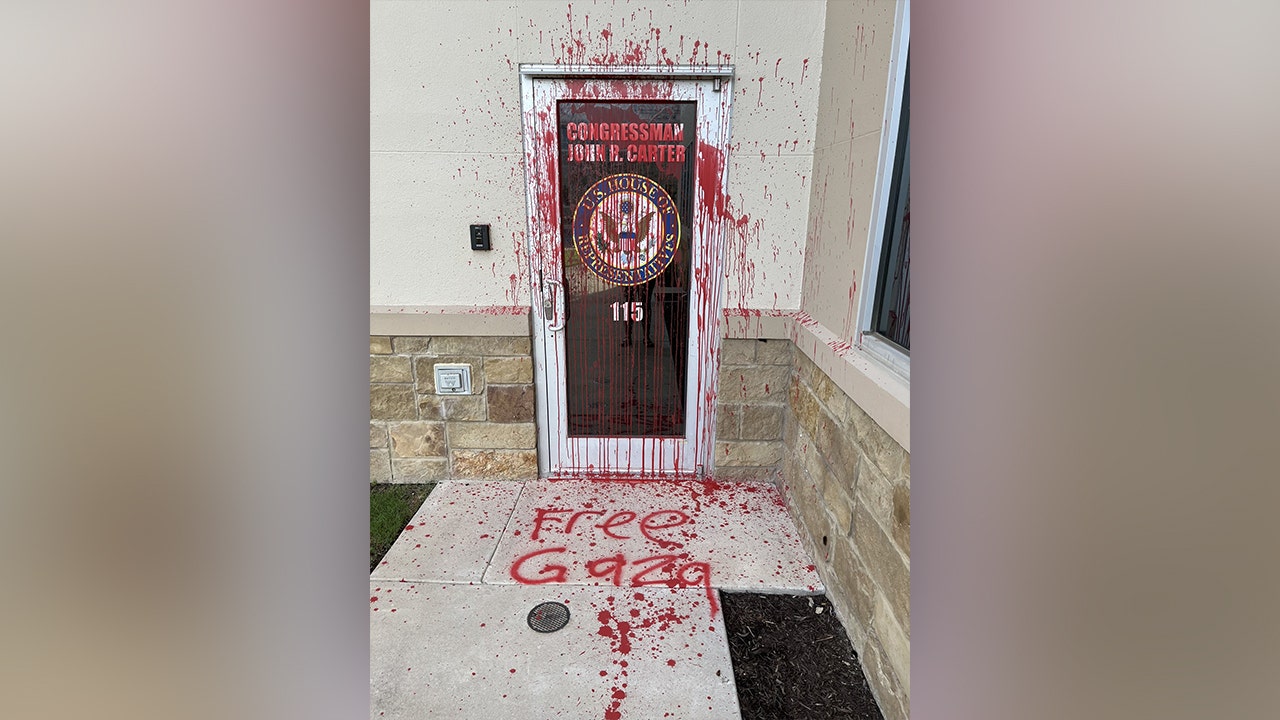Nebraska
How the debt ceiling deal could impact food stamp recipients in Nebraska

LINCOLN, Neb. (KLKN) — The bipartisan deal to raise the debt ceiling included some changes for food stamp recipients.
Before, anyone under 50 who did not have children needed to work at least 80 hours a month to qualify for food stamps.
But now, that applies to childless recipients under 54.
The Center on Budget and Policy Priorities, a think tank based in Washington, D.C., estimates that almost 750,000 adults ages 50 to 54 will be at risk of losing food assistance under the new requirements.
A Nebraska nonprofit said this is going to put a lot of people in the state at risk.
“Work requirements should’ve never been on the table in these debt ceiling negotiations because the purpose of SNAP is to provide meals, to provide supplemental nutrition and assistance to families and individuals who need it” said Eric Savaiano, who manages programs for food and nutrition access at Nebraska Appleseed.
Officials said the changes will cut spending on Supplemental Nutrition Assistance Program, partly by reducing how many people qualify for assistance.
The policy will be implemented in phases. By 2025, it will apply to those 54 and under.
The change will expire in 2030.
The expanded requirement also has plenty of supporters.
“It will help get Americans off the sidelines of our economy and back into the workforce while preserving these programs for those who truly need them,” said Rep. Adrian Smith of Nebraska.
Those exempt from the work requirements include the homeless, veterans or those who were in the foster care system.

Nebraska
Canadian cabinet minister to discuss trade, geopolitics during Nebraska visit

François-Philippe Champagne, Canada’s minister of innovation, science and industry, will deliver a May 3 address at the University of Nebraska–Lincoln, speaking on “U.S.-Canada Trade and Geopolitics.”
Champagne’s presentation, which is free and open to the public, is 1 to 2 p.m. in the Willa Cather Dining Complex, Red Cloud B-C, 530 N. 17th St. It will be livestreamed here.
Event cosponsors are the Clayton Yeutter Institute of International Trade and Finance and the Association of Students of the University of Nebraska.
“Canada is Nebraska’s largest export market,” Champagne said. “With a talented workforce and a stable, competitive economy, Canada is also a top destination for American companies looking to invest abroad. Millions of jobs on both sides of the border depend on trade and investment between our two countries.”
Champagne said he looks forward “to meeting with Nebraskans to discuss our mutual interest in North American competitiveness by shoring up our agricultural supply chains, investing in life sciences and seizing the opportunities of the new digital economy.”
In his cabinet position, Champagne has been energetic in traveling internationally to promote business opportunities in Canada. A Quebec native, he has a law degree from Case Western Reserve University in Ohio and has worked in the private sector in Italy, Switzerland and the United Kingdom.
He has held various ministerial roles in the Canadian government, including foreign affairs, infrastructure and trade.
Canada is the top export market for the United States and Nebraska, and a leading trade partner for both. Nebraska’s annual exports to Canada top $1.8 billion and recently included $247 million in agricultural machinery, $222 million in natural gas and other gases, $124 million in animal meats and $50 million in insurance services.
Nebraska’s top imports from Canada include $172 million in animal feed, $125 million in live animals, $108 million in plastics and $92 million in animal meats.
Omaha-based Werner Enterprises annually ships nearly 20,000 cross-border loads between the U.S. and Canada, according to the Consulate General of Canada in Minneapolis. More than 3,800 Nebraskans are employed by 63 Canadian-owned companies, the Consulate General reported.
The May 3 event is the latest in a series of trade-focused presentations sponsored or cosponsored by the Yeutter Institute, named after Eustis, Nebraska, native Clayton Yeutter (1930-2017). A University of Nebraska alumnus, Yeutter served as U.S. trade representative, U.S. secretary of agriculture and president and CEO of the Chicago Mercantile Exchange.
Nebraska
Records fall at 2024 Central Nebraska Track & Field Championships

GRAND ISLAND, Neb. (KSNB) – The 2024 Central Nebraska Track & Field Championships were held at Northwest on Monday, with qualifying athletes competing against some of the best in the area.
Several meet records were broken during the event. You can find a full list of results here.
Watch the embedded video for our full coverage.
Click here to subscribe to our KSNB Local4 daily digest and breaking news alerts delivered straight to your email inbox.
Copyright 2024 KSNB. All rights reserved.
Nebraska
AARP Nebraska celebrates new family caregiver tax credits for ‘unsung heroes’ • Nebraska Examiner

LINCOLN — AARP Nebraska is celebrating a newly passed proposal that would help cover family caregivers’ costs as they care for and support eligible family members.
Lawmakers approved Legislative Bill 937, which includes Lincoln State Sen. Eliot Bostar’s Caregiver Tax Credit Act, on a 45-0 vote during the final legislative day on April 18. Bostar designated the bill as his personal priority this year; it awaits Gov. Jim Pillen’s approval.
The nonrefundable credits, which would begin Jan. 1, would be equal to 50% of eligible expenditures related to a family member’s care or support of their loved one during the tax year.
“Caregiving is a critically important public health issue that affects the quality of life for millions of individuals nationally and thousands across Nebraska,” Bostar said in a statement.
How to qualify
To qualify, a caregiver must have a federal adjusted gross income of less than $50,000 (or $100,000 if filing as a married couple jointly). They must care for a relative who requires assistance with at least two activities of daily living, as certified by a health care provider, and who lives in a private residence — not an assisted living, nursing or residential care facility.
Eligible expenses include:
- Home improvements or alterations for the caregiver or eligible family member to permit mobility, safety and independence.
- Purchases or leasing of equipment necessary for the family member to carry out one or more activities of daily living.
- Costs related to hiring a home care aide, respite care, adult day care, personal care attendants, health care equipment or technology.
Costs must be directly related to care and cannot include general household maintenance, such as painting, plumbing, electrical repairs or exterior maintenance.
Individual caregivers can claim up to $2,000 in credits per fiscal year, or $3,000 if the individual is caring for a family member who is a veteran or has a diagnosis of dementia. If two or more caregivers claim an available credit for the same family member, the maximum credit would be divided between each caregiver.
Up to $1.5 million in credits could be claimed each fiscal year through June 30, 2027. The limit increases to $2.5 million in consecutive years.
Supporting ‘unsung heroes’
AARP Nebraska said Nebraska has approximately 179,000 family caregivers, and while each serves in a “labor of love,” the experience is “stressful, isolating and has a real financial cost” — on average more than $7,200 per household per year.
In total, this is more than 168 million hours in care, valued at $2.8 billion, which AARP Nebraska said mitigates more costly, taxpayer-funded long-term care and nursing home stays.
“When lawmakers agree on an issue regardless of political affiliation, the message is clear,” Todd Stubbendieck, state director of AARP Nebraska, said in a statement. “AARP is proud of the Nebraska Legislature for recognizing this critical need to help our state’s unsung heroes.”
The deadline is end of day Wednesday for Pillen to sign the bill or submit his objections to the Nebraska Secretary of State’s Office. As of Monday, the bill had not been signed, according to the Clerk of the Legislature’s Office.
A spokesperson for the governor said Pillen will be presented with LB 937 on Tuesday for his consideration.
More tax credits and exemptions
LB 937 also contained various other proposals for tax credits and exemptions, including these:
- LB 1002, from State Sen. Tom Brandt of Plymouth, sets the maximum amount of tax credits under the Nebraska Biodiesel Tax Credit Act for $1 million in the next fiscal year and $1.5 million the following years.
- LB 1022, from State Sen. Rita Sanders of Bellevue, establishes the Cast and Crew Nebraska Act, with up to $500,000 available beginning July 1, 2025. It will provide a refundable tax credit equal to at least 20% of a film and TV production company’s qualifying expenditures for projects produced in Nebraska.
- LB 606, from State Sen. Joni Albrecht of Thurston, establishes the Nebraska Pregnancy Help Act, allowing Nebraskans to claim a nonrefundable credit of up to 50% off their state income tax liability on contributions made to qualifying pregnancy help organizations. Total credits are limited to $500,000 in the fiscal year beginning July 1, 2025.
- LB 58, from State Sen. John Cavanuagh of Omaha, exempts diapers from state sales and use tax. The proposal is estimated to reduce state revenue by $1.2 million in the next fiscal year, then $6.7 million and $8.8 million in subsequent years.
-
GET THE MORNING HEADLINES DELIVERED TO YOUR INBOX
-

 News1 week ago
News1 week agoCross-Tabs: April 2024 Times/Siena Poll of Registered Voters Nationwide
-

 World1 week ago
World1 week agoIran launches dozens of drones at Israel
-

 Politics1 week ago
Politics1 week agoWhite House says US support for Israel is 'ironclad,' will 'support their defense' amid Iran attack
-

 News1 week ago
News1 week agoWyoming Democratic Caucus Results
-

 News1 week ago
News1 week agoCross-Tabs: April 2024 Times/Siena Poll of the Likely Electorate
-

 Politics1 week ago
Politics1 week agoNine questions about the Trump trial, answered
-

 World5 days ago
World5 days agoIf not Ursula, then who? Seven in the wings for Commission top job
-

 World1 week ago
World1 week agoHungary won't rule out using veto during EU Council presidency













